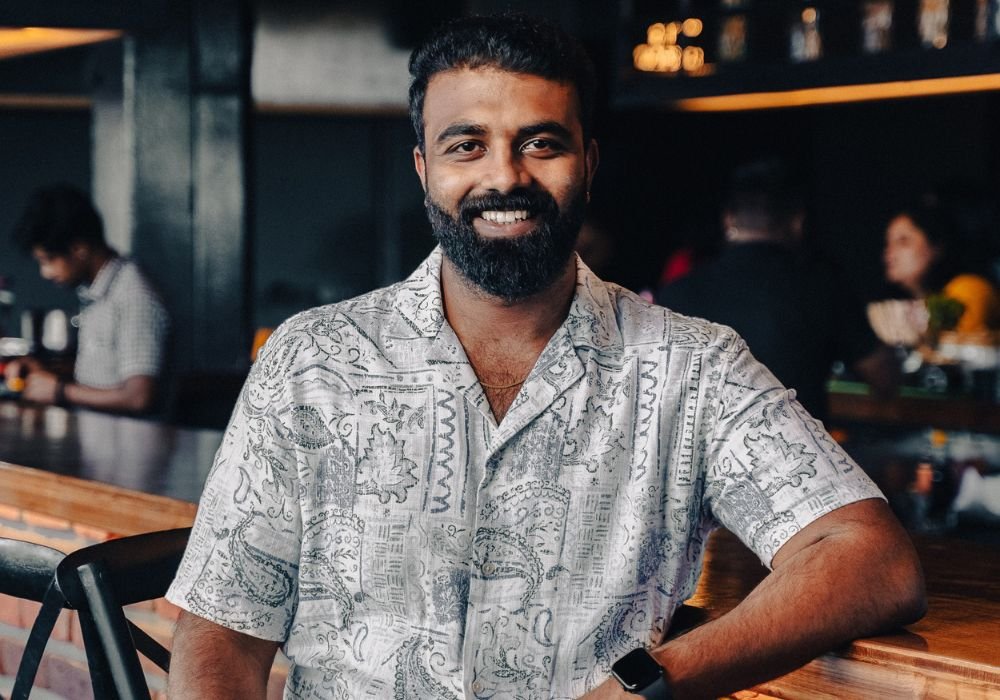Micro Breweries the Here & Now

Ishan Grover
Brew Master & Consultant, RJ Brewing Solutions
One must have noticed the sudden explosion in micro-breweries and brewpubs. They have mushroomed across cities, set shop in tier two towns and are gathering numerous enthusiasts for their craft beers. Craft beer is considered as much a thirst quencher as a work of art. With an MSc in brewing and distilling from Heriot-Watt University in Edinburgh, Scotland, Ishan Grover started his career as a trainee brewer at Ghana Food & Research Institute, Ghana. His earliest achievement was working and setting up India’s first international microbrewery in Gurgoan, working as a Brew Master with Lemp Brewpub & Kitchen, a franchise of LEMP Brewing Company, USA. Today, Grover manages a vast portfolio of clients like Manhattan Group, Farzi Cafe, Quaff, Manhattan, Underdoggs, Lagom, Mtv Flyp and more. Ishan Grover, industry icon in conversation with Brewer World.
Why do you think the microbrewery business has exploded in the recent years? Have any specific trends attributed to this explosion?
The Food and Beverage (F&B) Segment across pan India is saturated with number of bars and restaurants opening. People wanted change, multiple options, more menus, more themes, and the works. The introduction of brew pubs and microbreweries filled the gap by introducing the concept of producing beers on site. Folks from Bangalore, Gurgaon and Mumbai are a sorted lot since they have a lot more exposure which comes from travelling, TV shows, social media, blogs, even employees travelling abroad on work. Most of the consumers from these tier 1 cities know about the beer culture abroad and are then left wondering why the same culture does not exist in India.
Another age group contributing to the demand for craft beer are millennial’s. While they connect with the beers being served at Brewpubs, they equally enjoy a pint of commercially produced Lager.
You have the experience of setting up the largest number of microbrewery equipment installations in India. What has been your experience with clients across board?
Our company has commissioned over 50 breweries pan India and I have been directly involved with almost half of them. Clients vary in different geographies. There are some who open brewpubs because they are passionate about beers and their vision is clear and there are those who do it since the neighbourhood brewery is doing a really good business. So experience with each client
is unique and challenging at the same time.
What are your suggestions for hoteliers and restaurant owners exploring the opportunity of combining hotels/ restaurants with microbreweries?
It’s a wonderful opportunity for 5-star hotels, hotel bars usually have 24 hours license and their clientele consists of a lot of expats, who would prefer Indian Craft beer, over lagers available in the market. For restaurant owner I always advise them to research on their business plan and set realistic goals. Brewing is an art and a brewer is an Artist.
- Invest on brewers – give them the freedom to design the beers.
- Invest in quality equipment.
- Build better infrastructure, which reflects the hygiene standards of the Brewpub.
- Most importantly start drinking beers. I’ve meet a lot of potential clients who don’t like to drink beer.
Can you tell us when entrepreneurs propose to set up small, medium and big microbreweries what are the parameters they should look out for?
There are many challenges to setting up a brewery – licencing, space, construction, equipment, set-up and the team. However, one of the biggest challenges I’ve faced, is when the customer doesn’t know what he wants. The importance of having a sense of direction going into this business is an important one. Brewery capacity or size is another major challenge that one could face. Bangalore mostly has bigger breweries in prominent locations. Buying smaller equipment later creates problems in beer cycles and you end up serving Green Beer.
The brew master is the key to success, hire one before you design your place or buy equipment. He will ensure the other parameters are in place.
How should they go about setting a microbrewery chain in terms of the numbers, cities, timelines and sizes mapped with the investments required?
Setting up chain of brewpubs is definitely a fruitful option. However, one must not hurry into different projects till there first project has been established. For bigger corporates this whole process becomes easy since they have centralised systems and processes. Investments in brewpubs varies from city to city. If you are in Bangalore anywhere between INR8-10Cr, in Gurgaon it can start from Rs 3-4Cr.
I have many current examples, Manhattan Group has seven breweries all in same city, same goes with Striker group which has six breweries and then we have the Vapour group who has four in Gurgaon, one in Hyderabad and two in Bangalore. Farzi Café Bangalore is opening their second microbrewery in Chandigarh.
Why do you think it makes business sense to set up a brewery and a restaurant together instead of just selling beer in an established hotel? Any advice you would like to give hoteliers on the best possible business model?
This is how the government policy is made, which again varies from state to state. However, largely excise policy doesn’t allow brewpub beer to be served outside the licensed premises, Exception to this rule is in Punjab, Maharashtra and Goa. I prefer to have freedom to distribute beer to all the pubs or hotels in town.
In how many years can a businessman reach optimum ROI? What are the initial investments required for setting up microbreweries in varying sizes?
In my experience I have seen places reaching their ROI in 6-months but ideally the optimum time is 18-24 months. This again varies from state to state. In Bangalore since the investment is huge our projection forecast is 36 months.
Which cities in India have more potential and why? Do these cities have better and easier regulatory systems in place? How do you believe consumer profiles in a city impact the success of a microbrewery?
Bangalore is one of the biggest beer market at the moment followed by Gurgaon. Maharashtra has the best excise policy; Chandigarh, Goa and Kolkata are new entrants and they have huge potential for craft beer; Hyderabad also has more than 12 brewpubs but the excise policy has restrictions on number of licenses. One of the major reasons of success in Bangalore and Gurgaon is that these cities have the maximum number of IT companies.
What according to you will help promote this sector in India? What changes in the regulations do you believe can boost growth?
In next 10 years the craft brewing industry of India will be huge. There are only few states at the moment who have allowed Brewpubs. Though many states are considering opening their excise policies. The biggest regulation change which allows breweries to distribute their beers will be a major contributor. This will also reduce the Capex for serious brewing enthusiasts and will open the market to have many more options for beers.



